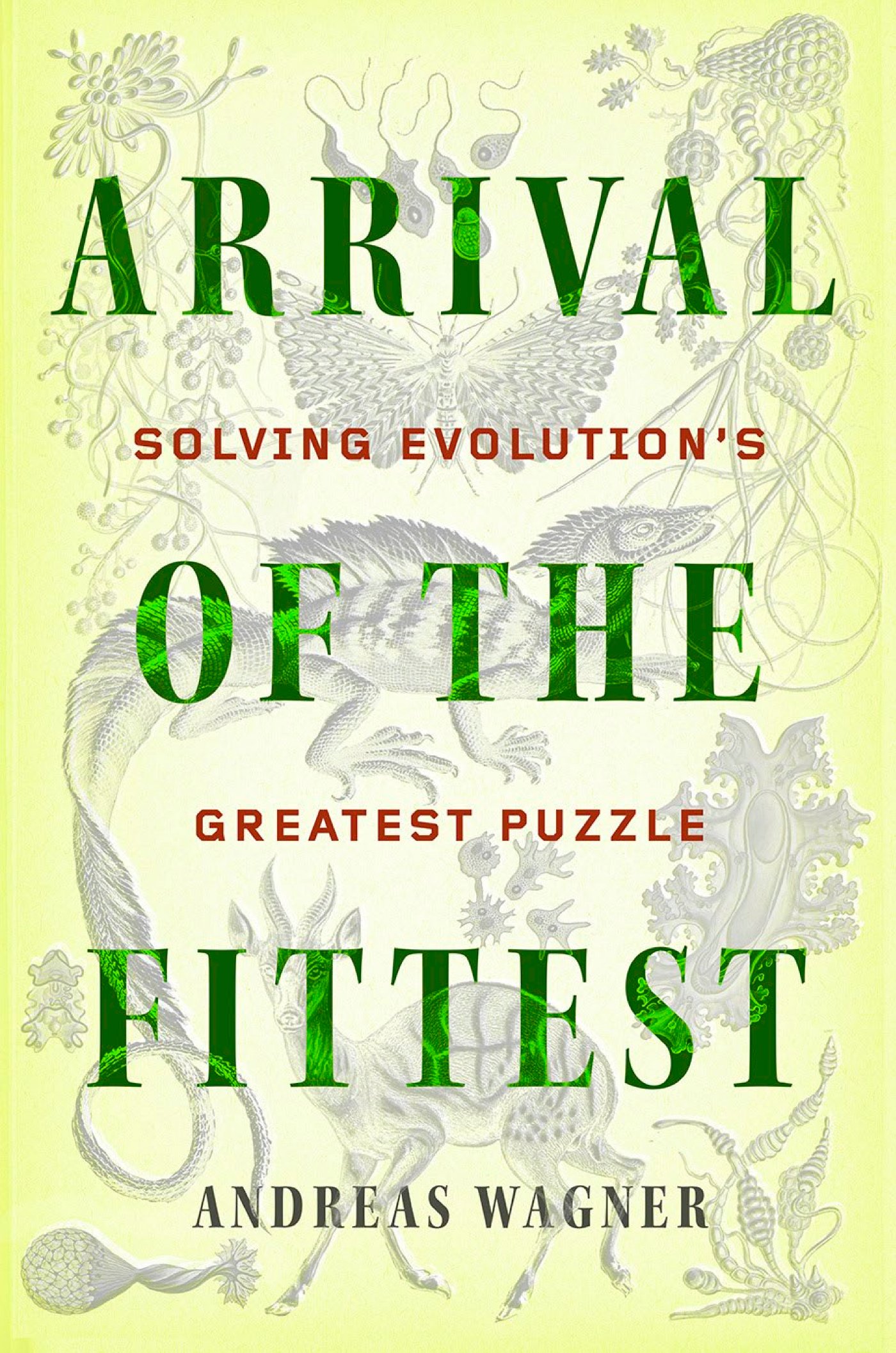 So claims a recent book, Arrival of the Fittest, by Andreas Wagner, professor of evolutionary biology at U Zurich in Switzerland (also associated with the Santa Fe Institute). He lectures worldwide and is a fellow of the American Association for the Advancement of Sciences.
So claims a recent book, Arrival of the Fittest, by Andreas Wagner, professor of evolutionary biology at U Zurich in Switzerland (also associated with the Santa Fe Institute). He lectures worldwide and is a fellow of the American Association for the Advancement of Sciences.
From the book announcement:
Can random mutations over a mere 3.8 billion years solely be responsible for wings, eyeballs, knees, camouflage, lactose digestion, photosynthesis, and the rest of nature’s creative marvels? And if the answer is no, what is the mechanism that explains evolution’s speed and efficiency?
In Arrival of the Fittest, renowned evolutionary biologist Andreas Wagner draws on over fifteen years of research to present the missing piece in Darwin’s theory. Using experimental and computational technologies that were heretofore unimagined, he has found that adaptations are not just driven by chance, but by a set of laws that allow nature to discover new molecules and mechanisms in a fraction of the time that random variation would take.
From a review (which is careful to note that it is not a religious argument):
The question “how does nature innovate?” often elicits a succinct but unsatisfying response – random mutations. Andreas Wagner first illustrates why random mutations alone cannot be the cause of innovations – the search space for innovations, be it at the level of genes, protein, or metabolic reactions is too large that makes the probability of stumbling upon all the innovations needed to make a little fly (let alone humans) too low to have occurred within the time span the universe has been around.
He then shows some of the fundamental hidden principles that can actually make innovations possible for natural selection to then select and preserve those innovations.
Like interacting parallel worlds, this would be momentous news if it is true. But someone is going to have to read the book and assess the strength of the laws advanced.
One thing for sure, if an establishment figure can safely write this kind of thing, Darwin’s theory is coming under more serious fire than ever. But we knew, of course, when Nature published an article on the growing dissent within the ranks about Darwinism.
In origin of life research, there has long been a law vs. chance controversy. For example, Does nature just “naturally” produce life? vs. Maybe if we throw enough models at the origin of life… some of them will stick?
Note: You may have to apprise your old schoolmarm that Darwin’s theory* is “natural selection acting on random mutations,” not “evolution” in general. It is the only theory that claims sheer randomness can lead to creativity, in conflict with information theory. See also: Being as Communion.
*(or neo-Darwinism, or whatever you call what the Darwin-in-the-schools lobby is promoting or Evolution Sunday is celebrating).*
Follow UD News at Twitter!